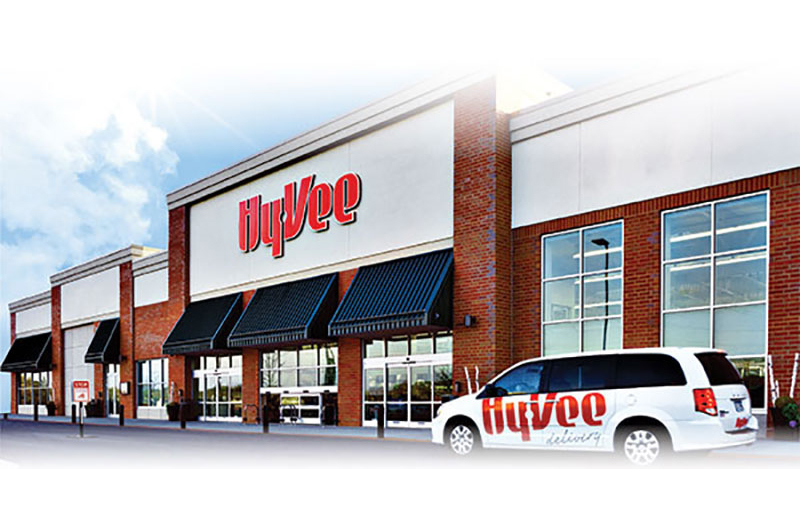Hy-Vee has joined the Consortium to Reinvent the Retail Bag as a supporting partner, alongside founding partners CVS Health, Target and Walmart, and joined by Dick’s Sporting Goods, Kroger and Walgreens. Closed Loop Partners’ Center for the Circular Economy launched the consortium and it’s Beyond the Bag Initiative earlier this year with the aim of identifying, testing and implementing viable design solutions and models that more sustainably serve the purpose of the current retail bag.
Hy-Vee is an employee-owned supermarket chain operating more than 275 retail stores across eight Midwestern states, based in West Des Moines, Iowa.
“The opportunity to join the Beyond the Bag Initiative and address the shared challenges presented by single-use plastics with some of the largest and most influential retailers in our country is crucial as we remain committed to reducing our environmental impact,” said Jay Marshall, Hy-Vee’s vice chairman and president of Hy-Vee’s supply chain and subsidiaries. “Through this collaboration, we can truly move the needle on a global waste issue and bring to life some much-needed solutions. We look forward to contributing our knowledge and insights and collectively collaborating with other consortium partners to pave the way for a more sustainable future.”
“We are thrilled to welcome Hy-Vee to the Consortium to Reinvent the Retail Bag. The collaborative power of our consortium enables us to have impact at scale and accelerate the pace of innovation to find alternatives to the current retail bag,” says Kate Daly, managing director of the Center for the Circular Economy at Closed Loop Partners. “We continue to invite other retailers to join us and send a unified signal for transformational change to address this long-standing environmental challenge.”
The Kroger Co. is the grocery sector lead partner of the consortium, directing priorities and activities for the initiative within the specific sector.
“Our commitment to phase out single-use plastic bags across our enterprise is a critical part of our Zero Hunger | Zero Waste social impact plan,” said Lisa Zwack, Kroger’s head of sustainability. “We’re thrilled to welcome Hy-Vee to the consortium, and we encourage other retailers to join our search for innovative, sustainable solutions to the traditional single-use plastic bag.”
Single-use plastic bags are among the top 10 items found on beaches and waterways, and it’s estimated that we use 100 billion plastic bags per year in the U.S., contributing to a global waste challenge. The short use (12 minutes, on average) and long lifespan of the plastic bag have led to rising concerns.
This is a challenge that is top-of-mind for communities and consumers who are concerned about the impact of single-use plastics on our environment and for brands that are seeking more sustainable solutions. Current alternatives can be costly and inconvenient, often trading one environmental issue for another. The retail bag needs reinventing.
In August, the consortium launched a global innovation challenge to source solutions to replace the current plastic bag – including tech-enabled reuse models, new materials and software and hardware innovations. The challenge closed recently with more than 450 submissions. Consortium partners, including retailers and environmental advisory partners – alongside third-party experts – will carefully review and select the shortlist and winners.
All submissions are viewed through the lenses of sustainability, accessibility, customer behavior and alignment with reuse and recovery infrastructure. Winning concepts are eligible to receive a portion of $1 million in funding, participate in a Circular Accelerator to receive further assistance in scaling and access testing and potential piloting opportunities.
The initiative not only brings together major retailers as consortium partners, but also engages with stakeholders across the bag value chain, including suppliers, materials recovery facilities, municipalities, advocacy groups and others to support this collaborative approach designed to promote viable market solutions that can scale, and bring value to retailers, customers and end markets.

